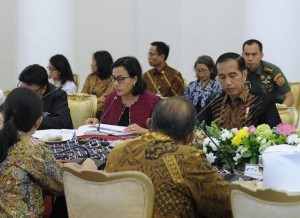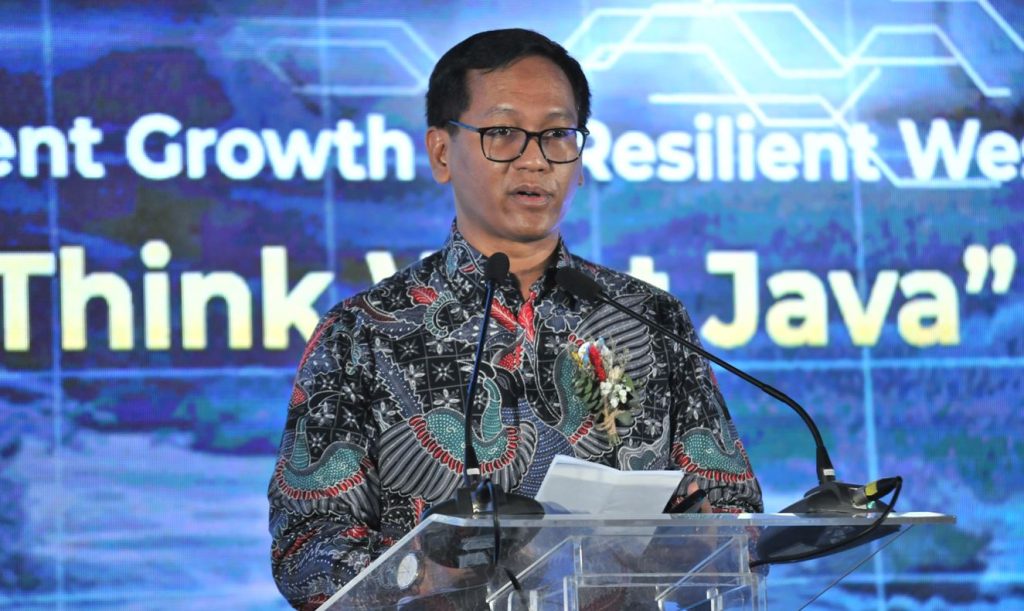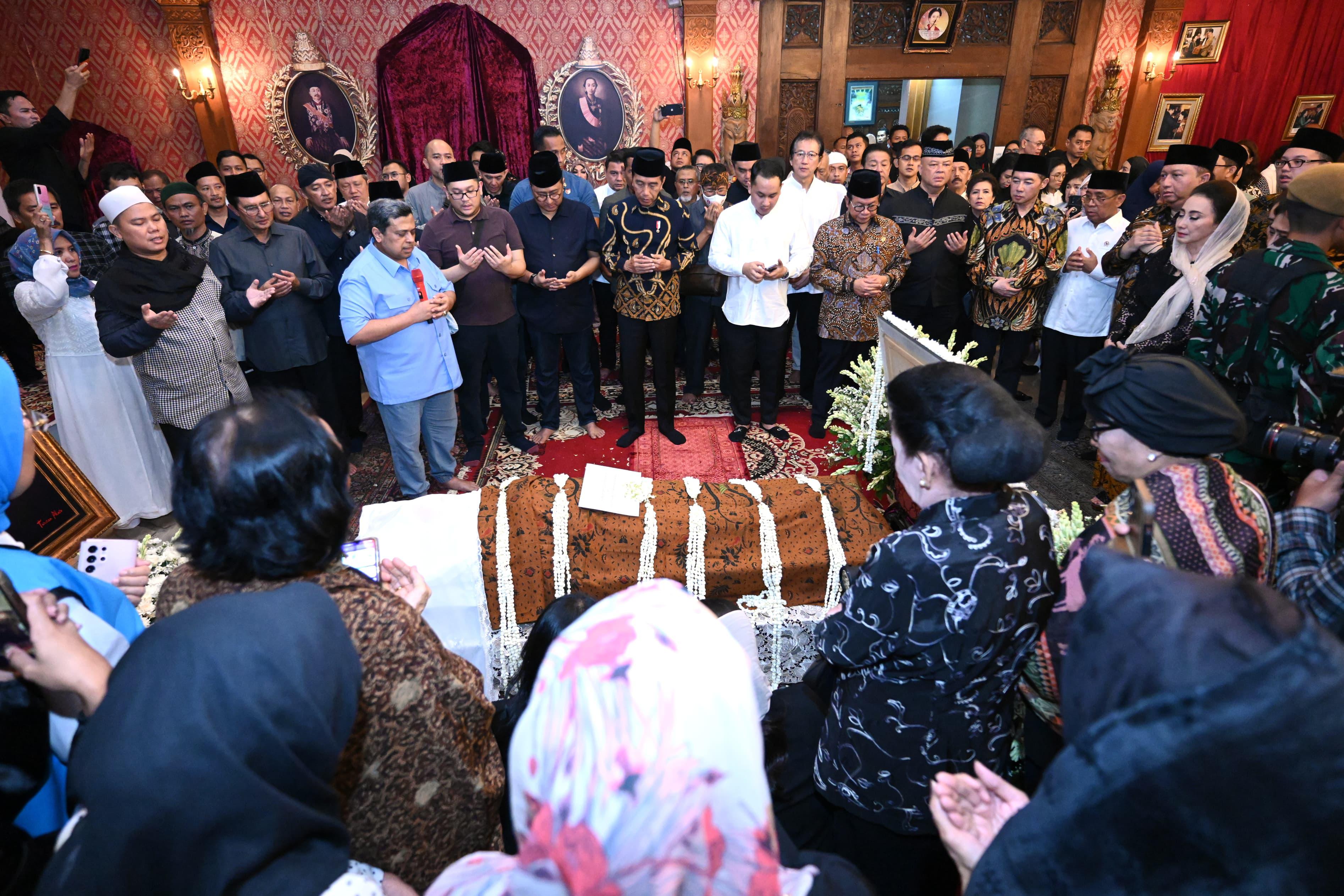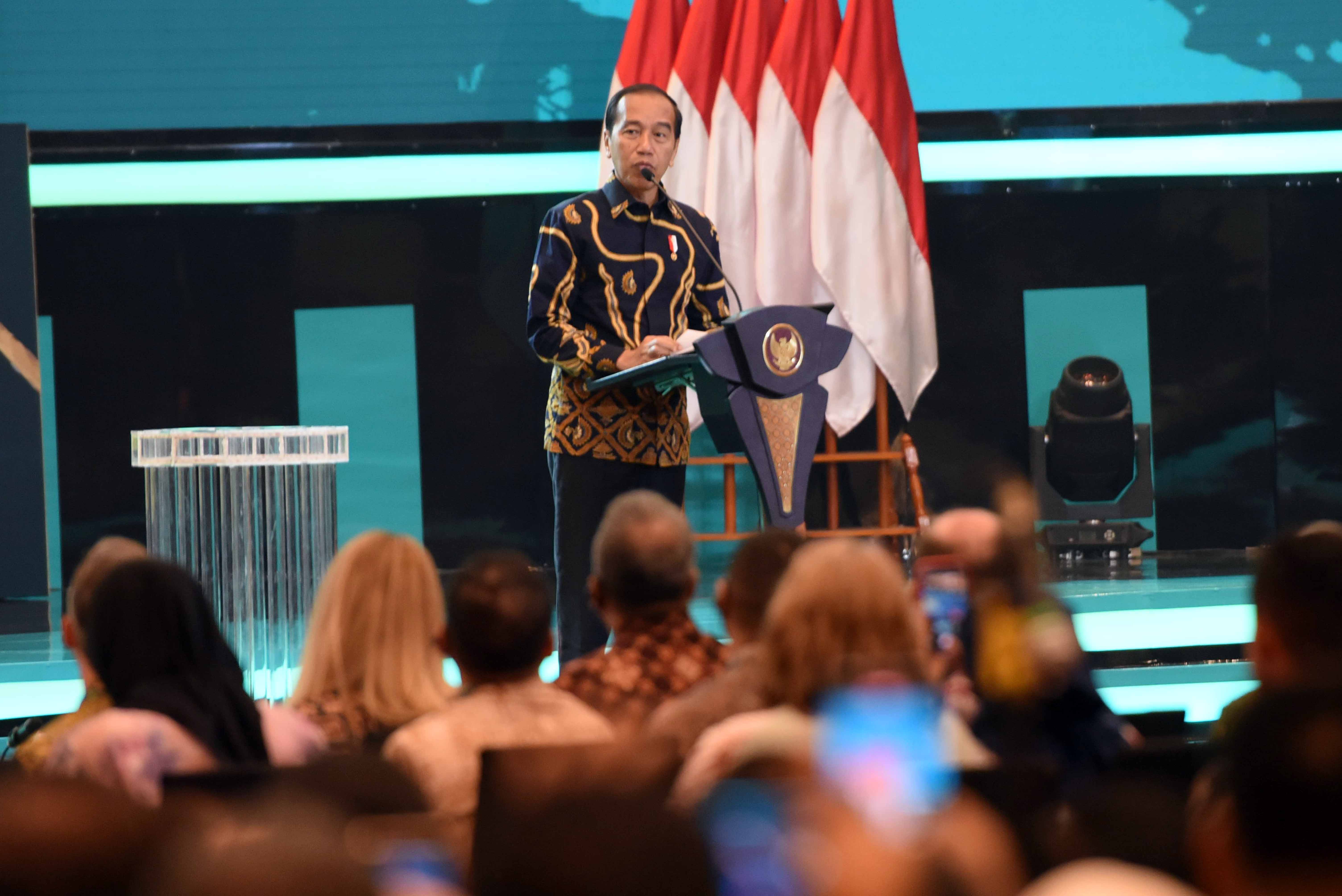Finance Minister: President Jokowi Decides Not to Revise 2018 State Budget

Finance Minister Sri Mulyani Indrawati during a Limited Meeting led by President Jokowi, at the Bogor Presidential Palace, Monday (9/7). (Photo by: Sri M’s Private Collection)
Minister of Finance Sri Mulyani Indrawati said that President Joko Jokowi Widodo has decided not to revise the 2018 State Budget, as there was no major deviation in terms of state revenues and expenditures. This was enunciated by the President in a Limited Meeting on the Realization and Prognosis of 2018 State Budget Implementation at the Bogor Presidential Palace, Monday (9/7).
Meanwhile, the deficit is smaller than planned, that is, from 2.19% to 2.12%.
Sri also promised to deliver the Presidents directives to the House of Representatives.
Earlier, in the beginning of her press statement, Sri said that economic growth in the first semester reached 5.1 percent. Then, from the tax revenues, in the first semester, non petrolium and gas Value-Added Tax (VAT) grew by 14.9 percent. “That is higher than last year’s growth of only 6 percent and 7 percent in 2016,” Sri said.
Sri further explained that revenue from VAT, grew 13.6 percent, nearly the same as the previous years growth. Meanwhile, the VAT grew negatively in 2016. In terms of customs and excise, the revenue grew 16.7 percent and the revenue from oil and gas Income Tax increased by 9 percent, compared to negative growth of 69 percent and 40 percent in 2017 and 2016 respectively.
From the taxation side, Sri continued, another positive thing is the compliance of the taxpayers in paying personal tax return (SPT) increased by 14 percent and corporate tax return grew by 11.2 percent.
Regarding non-tax state revenues (PNBP), due to high oil prices and rupiah exchange rate weakening against US dollar, the revenue of natural resources, oil and gas natural resources has increased quite high of 47.9 percent, compared to last year’s growth of 115 percent, which was high as well.
“Since the revenues both taxes and non-tax are strong enough, we see that in the 2018 State Budget of the first semester, the gross and later projections of state revenues will likely remain stable or even close to what we had planned,” Sri explained.
As for the expenditure, according to Sri, for the first semester all ministries/institutions have spent close to 35 percent. This is a good spending level or better than last years which was only 33 percent of its absorption.
Meanwhile, the realization of non-ministries/institutions expenditure is mainly related to the subsidy and debt interest payments of 43.9 percent, or higher than last year’s of 41 percent.
When it comes to transfers to regions, the realization is 50.3 percent, lower than last year’s of 51 percent, since we made a profit-sharing payment last year. However, there was an increase for the Village Fund. “We have spent close to 60 percent of the total budget of Rp60 trillion. This is higher than last year’s of Rp57 trillion,” Sri said.
Sri also added that Indonesia’s primary balance is a surplus of Rp10 trillion. Meanwhile, last year was negative Rp68 trillion.
“It is such a significant positive spike from negative Rp68 trillion to positive Rp10 trillion,” Sri said, adding that the President has decided that with the posture of stable state budget, we will maintain it with a deficit lower than planned.
Initially, the 2018 deficit is set to 2.19 percent of GDP. However, from the current outlook, Sri estimated that the 2018 State Budget will deficit to only 2.12 percent of GDP or Rp314 trillion, lower than originally estimated of Rp325 trillion.
Sri also explained that the Government will adopt this fiscal instrument to maintain the economy, mainly when global economic conditions are facing uncertainties. (GUN/DNA/RAH/ES) (MUR/YM/Naster).







